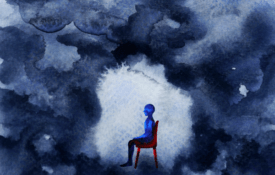-

APS Advocates for Behavioral Science in New EU Health Emergency Initiative
In recent letter, APS commends the European Union on a new health preparedness initiative and encourages the integration of the behavioral and social sciences, including psychological science, as the initiative’s work develops.
-
Decision Fatigue: Why It’s So hard to Make Up Your Mind These Days, and How to Make It Easier
From the moment we wake up each day, we’re faced with a continuous stream of choices. Many are minor (which route to take to work), others are major (whether to accept a new job) and they all add up. When there are too many options, we tend to feel overwhelmed, anxious, stressed or otherwise out of sorts. This is decision fatigue, a state of mental overload that can impede our ability to make additional decisions. Even if you’ve never heard of decision fatigue, you have probably experienced it, especially during the pandemic, which has added a new layer of complexity to the everyday choices we face.
-
Why Everyone’s Favorite Personality Test is BS
Myers-Briggs tests have a persistent hold on many of us. Employers administer them to new recruits. Singles put their results in dating profiles, next to their astrological signs. And, to my dismay, the test was even featured recently in a Fast Company article about remote work and personality types. Why, you might ask, was I dismayed by this? For that, we have to dig into the field of personality psychology a bit more. The Myers-Briggs Type Indicator, or MBTI, is an assessment that was developed in the early 1940s by Katharine Cook Briggs and Isabel Briggs Myers, based on the writings of Swiss psychologist Carl Jung and his discussion of personality archetypes.
-
R. Allen Gardner, 91, Dies; Taught Sign Language to a Chimp Named Washoe
Washoe was 10 months old when her foster parents began teaching her to talk, and five months later they were already trumpeting her success. Not only had she learned words; she could also string them together, creating expressions like “water birds” when she saw a pair of swans and “open flower” to gain admittance to a garden. Washoe was a chimpanzee. She had been born in West Africa, probably orphaned when her mother was killed, sold to a dealer, flown to the United States for use of testing by the Air Force and adopted by R. Allen Gardner and his wife, Beatrix. She was raised as if she were a human child. She craved oatmeal with onions and pumpkin pudding.
-

Psychological Interventions for the Treatment of Chronic Pain in Adults
In the latest PSPI, a team of researchers explores how psychological interventions can be part of a comprehensive plan to manage chronic pain while reducing the need for surgeries and potentially dangerous medications. Charles Blue interviews Mary Driscoll, a researcher at Yale University, and first author on the issue’s main article.
-

Chronic Pain Treatment Should Include Psychological Interventions
The latest PSPI examines psychological interventions for the treatment of chronic pain, including the gap between the evidence of the effectiveness of several psychological interventions and their availability and use in treatment.


